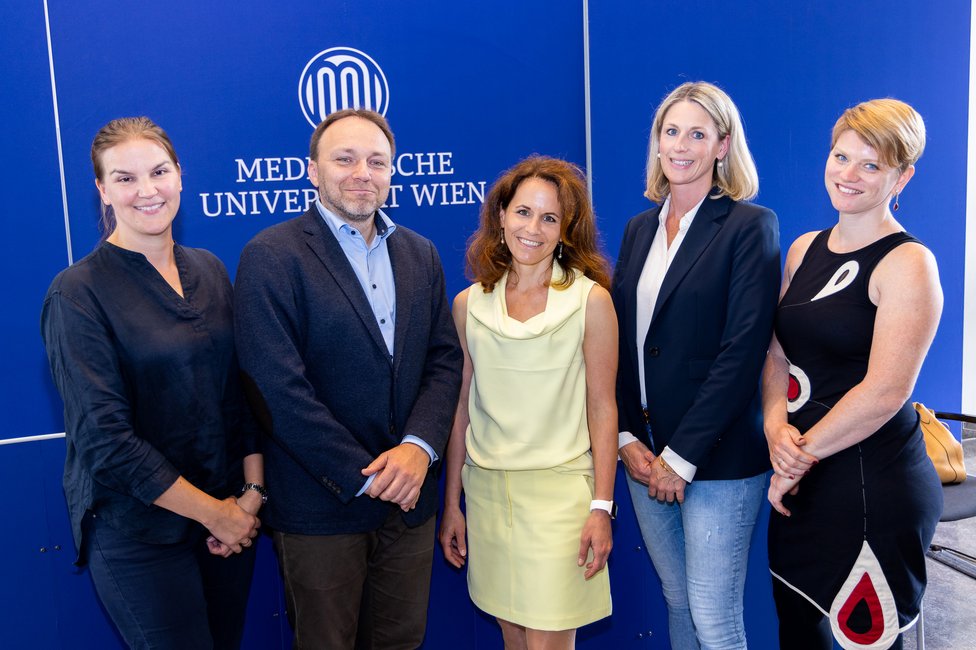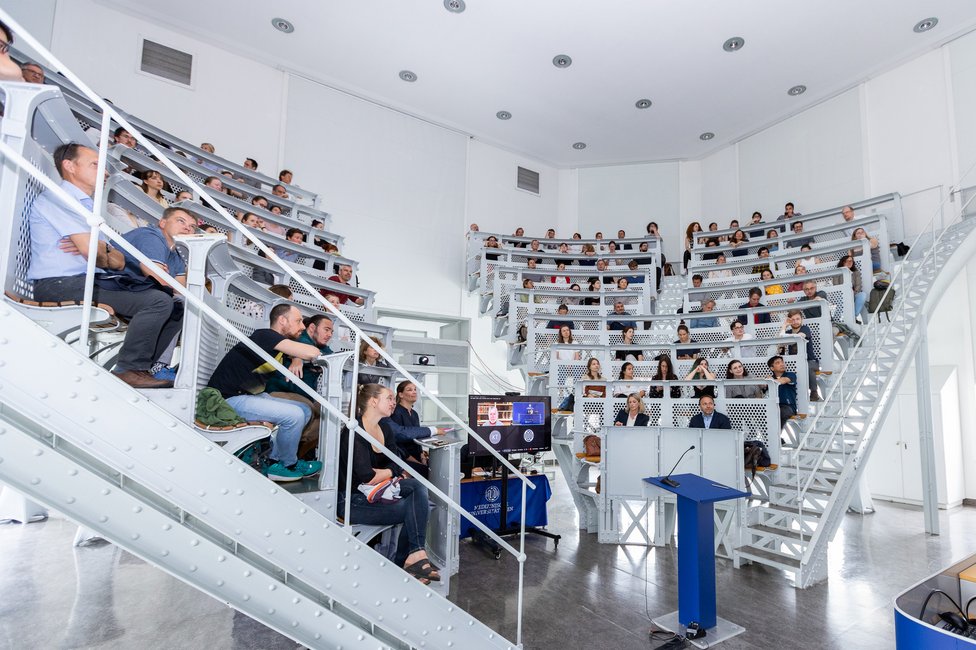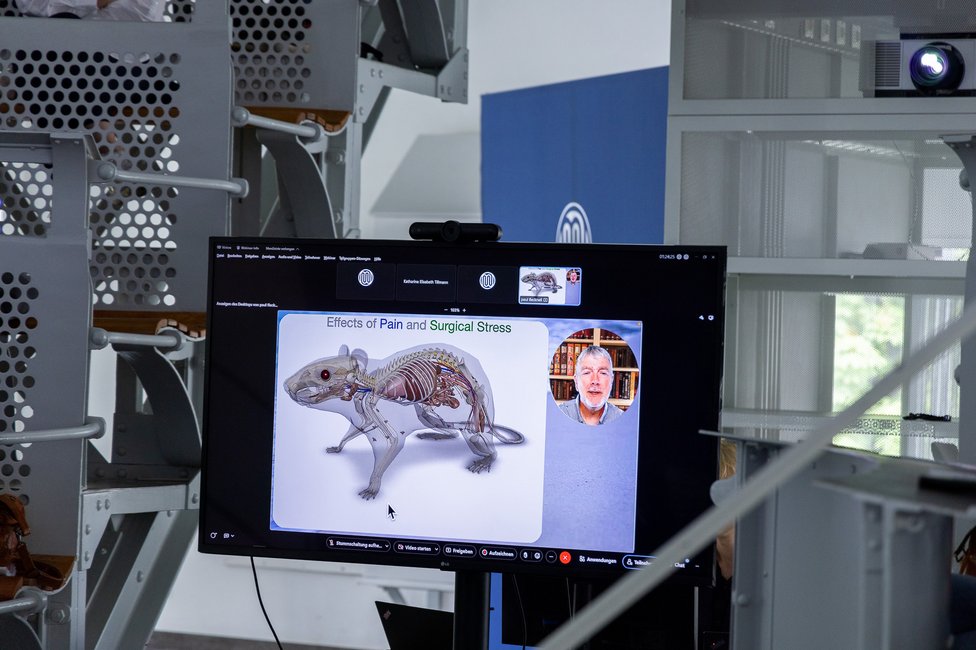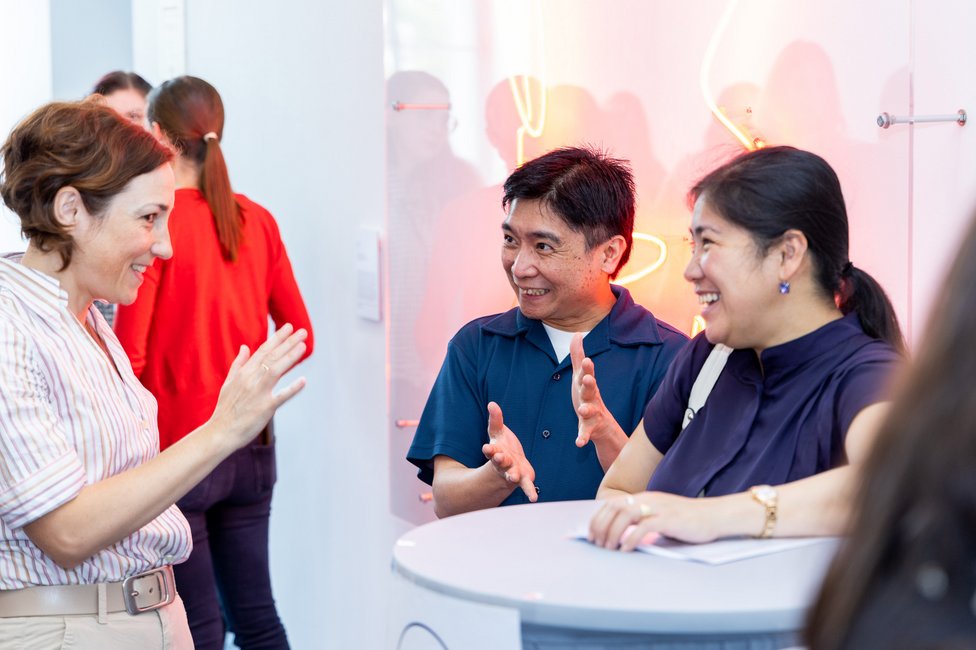Despite significant progress in the development of alternative methods, experiments involving live animals are, and will remain necessary in biomedical research, in order to investigate the complex processes and interactions of physiological and pathological processes in an intact organism.
The framework conditions for carrying out animal experiments are specified by federal law and strictly mandate the considerations of the 3Rs for replacement, reduction and refinement, as well as all continuous training of persons performing animal experiments, or otherwise working with laboratory animals.
This mini-symposium on Continuous training for conscious research involving laboratory animals has been conceived in consideration of these aspects and beyond, to reflect our commitment to a culture of care in handling, and working with laboratory animals.
Here you can view the contributions at the symposium:
Paul Flecknell: Assessment, Prevention and Alleviation of Pain and Distress
After activation, data will be sent to YouTube. Further information here: Data protection

Paul Flecknell
Professor Paul Flecknell has over 40 years of experience in the care and welfare of animals. He has authored numerous scientific publications, books and book chapters and has an international reputation in this field.
Paul qualified from Cambridge Veterinary School and completed his PhD at the University of London.
He is a Diplomate of the European Colleges of Veterinary Anaesthesia and Analgesia and Laboratory Animal Medicine. He is an RCVS Diplomate in Laboratory Animal Science and an honorary Diplomate of the American College of Laboratory Animal medicine. He is an honorary Fellow of the Royal College of Veterinary Surgeons and has an honorary doctorate from the University of Ghent.
He worked as Director of a multi-species research facility for over 30 years and has extensive experience in development and delivery of training and education in animal care and welfare. He has wide experience on advising on facility management and ethical issues.
As head of the Pain and Animal Welfare Science (PAWS) group at Newcastle, he published over a 100 scientific papers, reviews and book chapters in the field of analgesia and anaesthesia of laboratory animals. The group are widely recognised for their work on novel methods of cage-side assessment of pain, particularly using pain faces and developing methods of measurement of affective state in rodents.
Bernhard Völkl: How Many Mice Make Robust Outcomes?
After activation, data will be sent to YouTube. Further information here: Data protection

Bernhard Völkl
Bernhard Völkl studied Biology and Zoology at the University of Vienna receiving his PhD in 2005, investigating social learning in marmosets. Thereafter he switched from primates to birds and from lab to field work, investigating social learning in keas at Mount Cook National Park in New Zealand. After receiving his PhD he worked as a post-doctoral research fellow at the CNRS-Strasbourg with Ronald Noë and the Humboldt University at Berlin with Peter Hammerstein, where he developed theoretical models to predict how the social structure of a group influences patterns of information propagation and cooperation. In 2012 Völkl joined the Edward Grey Institute of Field Ornithology at the University of Oxford, studying great and blue tits, with the goal to understand how the social role of an individual affects it’s reproductive success and how variation in social behaviour is maintained. He is a member and scientific coordinator of Waldrappteam and elected fellow of the Royal Geographic Society. Völkl joined the Division of Animal Welfare at the University of Bern in 2015. As member of the REFINE team he is developing experimental designs that will improve repeatability of pre-clinical animal research by optimally utilizing phenotypic and environmental variation.
Christiana Winding-Zavadil & Silvia Bader: What is the burden of a genotype? | GeneticallyAlteredAnimals – Legal Aspects
After activation, data will be sent to YouTube. Further information here: Data protection

Christiana Winding-Zavadil
Read more about Christiana Winding-Zavadil on her research profile.

Silvia Bader
More infos coming soon.
Host

Daniela Pollak
Read more about Daniela Pollak in her research profile.
Impressions of the event
Contact
Medical University of Vienna
Department of Neurophysiology and Neuropharmacology
Schwarzspanierstrasse 17, I
A-1090 Vienna, AUSTRIA
tierversuchskommission@meduniwien.ac.at



